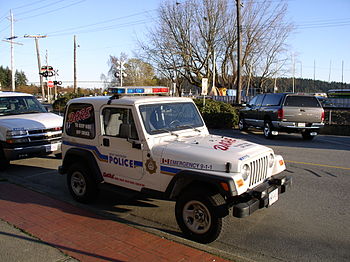
Per CNN, New York governor Andrew Cuomo attributes 160 emergency room visits in his state, over a period of only nine days, to “synthetic marijuana” use. Alabama’s Department of Public Health claims 98 overdoses statewide in March.
The chemical stew — sold under the fiction that it’s to be used as incense or in some other innocuous way , but well-known as a substitute drug for those seeking a recreational, marijuana-like high — reportedly comes with side effects ranging from confusion and headaches to seizures and even death.
Is this latest drug scare a real problem, or just another instance of the hysterical propaganda used to justify marijuana prohibition for 80 years or so? It’s hard to tell. I’m inclined to think that it’s for real and that “spice” is some bad stuff. But either way, the real problem is prohibition itself.
Synthetic marijuana users would probably rather have the real thing. Unfortunately, it’s harder to find. Unlike “synthetic marijuana,” it isn’t sold openly in stores except in a few states. And it too comes with a major side effect: The possibility of going to jail.
In fact, that’s its ONLY major side effect. Marijuana is among the safest drugs around. It’s pretty much impossible to overdose on. It doesn’t impair judgment, motor skills or reaction times as badly as alcohol does. And while smoking it may be bad for the lungs, its users normally don’t go through two packs a day as tobacco users do.
As a public health matter, the obvious answer to the “synthetic marijuana” problem is to end the government’s war on real marijuana. And that’s been the correct answer to all supposed “marijuana problems” since marijuana prohibition came into vogue in the 1930s.
Starting with California in the 1990s, states began legalizing medical marijuana use. So far 24 have done so. Only four states (Colorado, Washington, Alaska and Oregon) and the District of Columbia have moved to decriminalize possession of small quantities of this relatively benign plant.
Why are things moving so slowly? If you have to ask “why,” the answer is almost always “money.” Prohibition is a major industry.
The US government spends tens of billions of dollars per year providing “war on drugs” employment to cops and bureaucrats who might otherwise have to find real jobs. Local police departments count on drug busts (and associated property seizures) to pad their own payrolls. The American prison-industrial complex lobbies hard for laws that keep its cells filled. And assorted “non-profits” like Drug Abuse Resistance Education (DARE) rake in tens of millions of dollars annually by pitching anti-drug propaganda at a captive audience — our kids.
The war on drugs benefits the prohibition industry. But where the public’s health and freedom are concerned, its costs — people jailed, people killed, sick people denied real medicine, well people made sick by inferior recreational substitutes — far outweigh any benefits, real or imagined.
The war on drugs is a national nightmare. Time to wake up and end it.
Thomas L. Knapp is director and senior news analyst at the William Lloyd Garrison Center for Libertarian Advocacy Journalism (thegarrisoncenter.org). He lives and works in north central Florida.
AUDIO VERSION
PUBLICATION/CITATION HISTORY
- “The Problem Isn’t Synthetic Marijuana. The Problem Is Prohibition.” by Thomas L. Knapp, Ventura County, California Citizens Journal, 04/20/15
- “The problem isn’t synthetic marijuana, the problem is prohibition,” by Thomas L. Knapp, Muscatine, Iowa Journa, 04/21/15
- “The problem isn’t synthetic marijuana; it’s probation” [sic], by Thomas L. Knapp, University of New Mexico Daily Lobo, p.4, 04/21/15
- “The problem isn’t synthetic marijuana. The problem is prohibition.” by Thomas L. Knapp, Batesville, Arkansas Daily Guard (paywall), 04/21/15
- “The Problem Isn’t Synthetic Marijuana. The Problem Is Prohibition.” by Thomas L. Knapp, Tomball/Magnolia/Pinehurst Texas Tribune, 05/12/15
